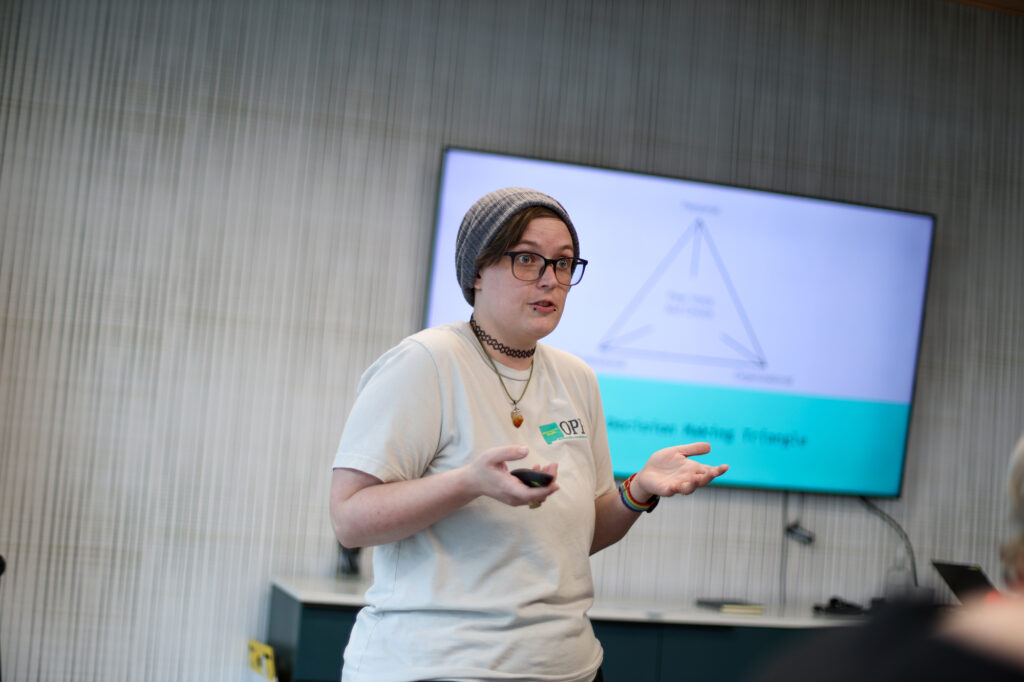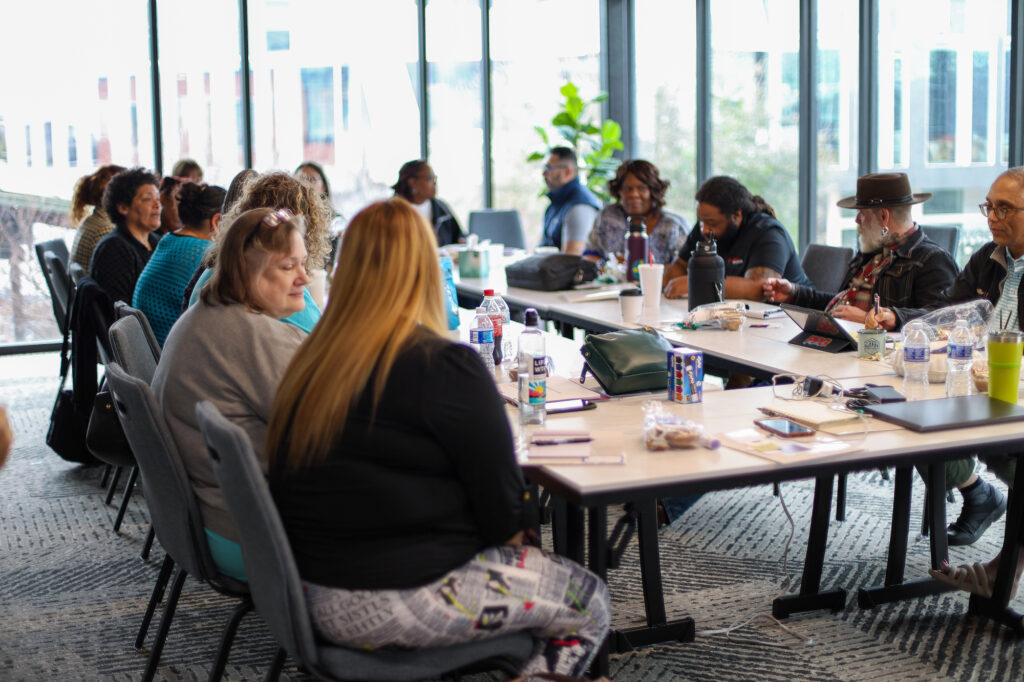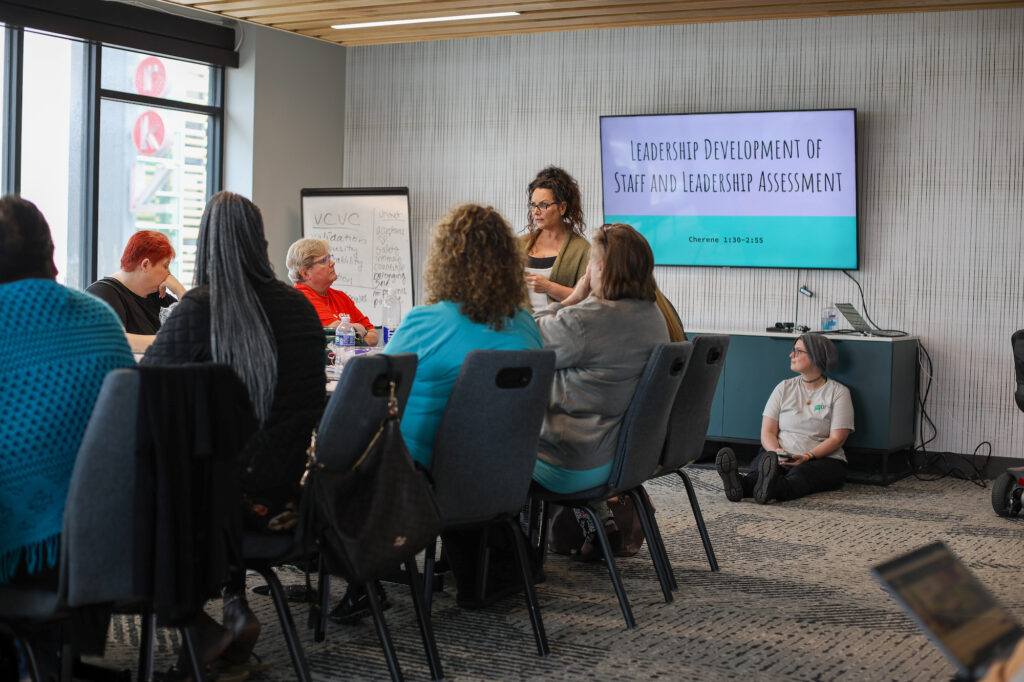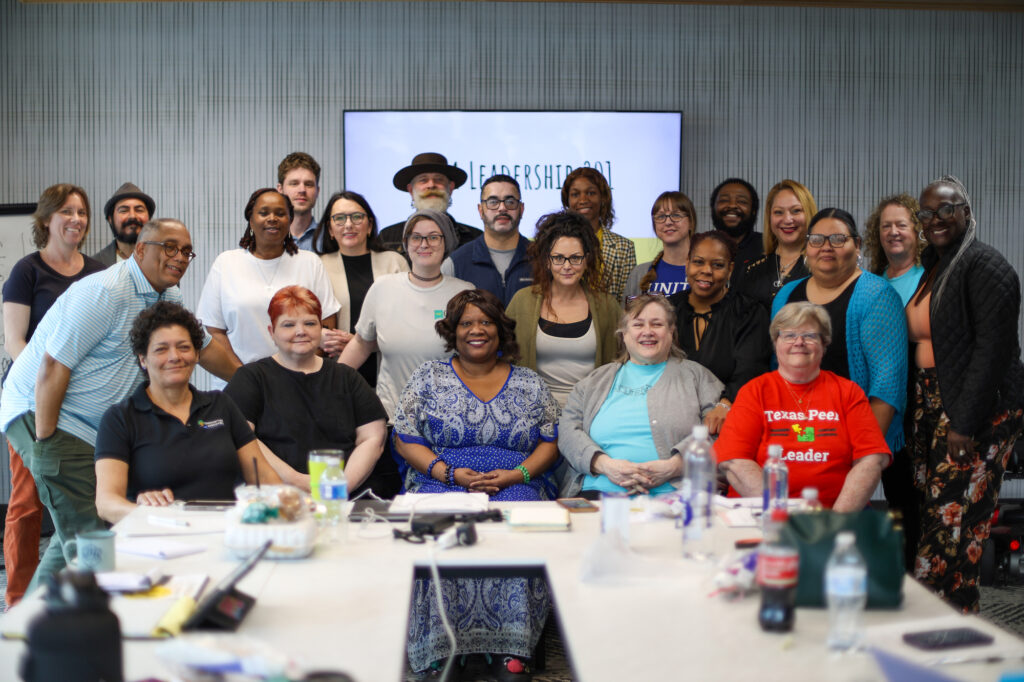What makes someone a good leader? Is leadership something you can teach in a classroom setting? What does leadership look like and sound like?
These are some of the questions trainer Cherene Allen-Caraco raised during the Peer Organization Growth Academy’s (POGA) in-person session, “Leadership Development of Staff and Leadership Assessment.” This presentation was one session in a recent two-day in-person leadership training— other trainers included Anna Grey and Jessi Davis.
POGA is a 10-month program designed to empower peer-led and peer-run organizations across Texas to create growth and sustainability through learning and connection. Senior Administrative Program Coordinator Jessi Davis and Research Associate Juli Earley from the Texas Institute for Excellence in Mental Health (TIEMH) are passionate about coordinating this project and engaging with peer professionals.
In this post, we’ll share more details about POGA and highlights from their leadership training in Austin, TX.


What is the Peer Organization Growth Academy?
POGA, which is sponsored by the Peer and Recovery Support Section of Texas Health and Human Services, welcomed its first cohort in fall 2023.
What’s the program’s format?
POGA includes ten virtual courses and three multi-day in-person events developed and delivered by Texas peer leaders covering topics that address the capacity development needs of peer-led and peer-run organizations. Plus, there are monthly virtual networking sessions for participants to connect and reflect on their experiences.
POGA also includes:
- Content from experienced peer industry professionals and others
- Mentorship from peer-led organization directors and leaders
- Unlimited access to training materials
What topics will be covered?
POGA’s curriculum covers a wide range of topics to help peer professionals strengthen their organizations— whether that be through personal development, historical lessons on the peer movement, business strategy, and more.
Here are a few of the sessions from POGA’s 2023-2024 program:
- Organizational Culture, Values, Vision, and Mission
- Fidelity, Evaluation, and Measuring Impact
- Financial Management
- Human Resources
- Branding and Marketing
- Advocacy and Lobbying
- And much more

Highlights from POGA’s “Leadership Development of Staff and Leadership Assessment” session
“A good head and a good heart are always a formidable combination.”
-Nelson Mandela
On day two of a recent learning event in Austin, POGA participants met up for a round of insightful sessions and group activities. Cherene kicked off her session by asking everyone to find a partner and discuss three “ingredients” that can help cultivate “heart” and “head” as a leader.
Heart-led means considering your values and emotions, while head-based means using information or logic. Each ingredient came with its own set of questions, and Cherene asked everyone to consider how their experiences may have been heart-led or head-based.
Ingredient one: Learning through exposure
- How did you learn to be a leader?
- How are you learning now?
- What were you NOT exposed to that you needed?
A few folks pointed out that they were often thrown into a position of leadership out of necessity and learned on the job rather than getting official “leadership development.” Others talked about how they learned through problem-solving, which often happened through life experiences.
One person shared that they learned a lot through assuming family responsibilities at an early age. These days, they prioritize learning and growth by exposing themself to situations or experiences that take them out of their comfort zone.
Ingredient two: Unlearning through experience
- How have you unlearned?
- What experiences did you NOT have that you needed?
Overall they agreed that, as leaders, they’re responsible for learning and unlearning certain things to better connect with people with very different life experiences.
Ingredient three: Learning by example/mentorship
- Who shaped you (good, bad, and ugly) as a leader?
- What examples were you seeking that you didn’t have access to?
Some shared personal stories about how life experiences have shaped them and their leadership styles. By the end of the discussion, many recognized that they would’ve appreciated having access to peers like those who were in the room with them.

Interested in learning more about POGA?
We hope this gave you a better idea of what the Peer Organization Growth Academy is all about. For more POGA material, check out our recent uploads on YouTube! We’ll be sharing webinar recordings and other helpful content.


I would like to be apart of the POGA experience. When will you begin accepting new students? What is the process and how can I become active?
Hi Jacqueline! As of now POGA is a one-time program, but we’d love to stay in touch and share the training content we’re covering in POGA. Please email Juli Early and Jessi Davis for more information – juli.earley@austin.utexas.edu and jessi.davis@austin.utexas.edu – Thank you!